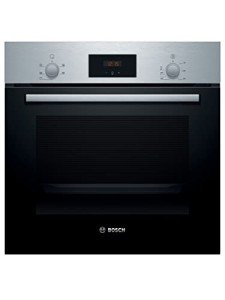20 Things You Need To Be Educated About Single Electric Ovens
The Comprehensive Guide to Single Electric Ovens: Features, Benefits, and Buying Tips
In today's hectic world, cooking at home is ending up being increasingly popular as individuals discover delight in preparing meals that not only please their appetite but also enable them to express their creativity. At the heart of lots of cooking areas is the single electric oven, a vital appliance that uses convenience and reliability. This article checks out the various aspects of single electric ovens, including their functions, benefits, and suggestions for choosing the ideal one. Furthermore, it will address frequently asked concerns to provide a deeper understanding of this valuable kitchen tool.
What is a Single Electric Oven?
A single electric oven is a standalone or built-in home appliance that operates using electrical power as its main heat source. Unlike double ovens, which supply 2 separate cooking compartments, a single electric oven offers one cooking cavity, making it ideal for smaller areas or for those who do not need numerous cooking choices at as soon as.
Features of Single Electric Ovens
Single electric ovens included a number of functions that boost their performance and functionality. Some of the typical functions include:
Feature
Description
Convection Cooking
Utilizes a fan to distribute hot air for even cooking.
Self-Cleaning
Instantly cleans the interior by raising the temperature.
Digital Controls
User friendly touch controls for precise temperature level settings.
Multiple Cooking Modes
Options like baking, broiling, roasting, and more.
Energy-Efficient
Generally more energy-efficient than gas models.
Timer Functions
Built-in timers for much better cooking management.
Smart Features
Wi-Fi connection for remote control by means of smartphone apps.
Advantages of Using a Single Electric Oven
Consistent Cooking Temperature: Electric ovens provide a steady temperature, ensuring uniformly prepared food without the hotspots typically discovered in gas ovens.
Easy to Clean: Many electric ovens included self-cleaning functions that get rid of the need for scrubbing and chemical cleaners.
Greater Baking Capacity: Single electric ovens normally use more baking space than their range counterparts, making them suitable for baking large products like roasts or casseroles.
Safety: Electric ovens get rid of the dangers related to gas leaks and offer functions like automated shut-off that enhance security.
Versatile Cooking Options: With various cooking modes, electric ovens can quickly manage a wide selection of dishes, from baked items to roasted meats.
Considerations When Buying a Single Electric Oven
Picking the best single electric oven can significantly affect your cooking experience. Here are some factors to think about:
Size and Space: Measure your kitchen space to ensure the oven will fit perfectly. Most single ovens have standard dimensions, but it's important to validate.
Kind of Installation: Determine if you want a freestanding system or a built-in model. Built-in models normally incorporate much better with cabinets.
Power Requirements: Ensure that your kitchen's electrical system can support the oven's power requirements, which generally range between 240 to 280 volts.
Expense and Brand Reputation: Research numerous brands and check out client reviews, considering both preliminary expenses and long-term reliability.
Energy Efficiency: Look for designs that feature energy-saving features to lessen electricity expenses.
Warranty and Support: Choose a brand that uses excellent customer support and service warranty protection to ensure help in case of future repair work.
Popular Brands of Single Electric Ovens
- Bosch: Known for their reliability and streamlined designs.
- GE Appliances: Offers a variety of inexpensive and feature-rich models.
- Whirlpool: Famous for their resilient and efficient ovens.
- Samsung: Incorporates wise innovation into their appliances.
- Maytag: Renowned for high-performance ovens designed for heavy use.
Often Asked Questions (FAQs)
1. What is the typical life-span of a single electric oven?
The average life-span of a single electric oven is around 10 to 15 years, depending on the brand name, use, and maintenance. Regular cleaning and prompt repair work can extend its life expectancy.
2. Do single electric ovens take in a lot of electrical power?
Single electric ovens can be energy-efficient, depending upon the model. Many modern ovens come with energy-saving features that can assist reduce electrical power usage.
3. Can I set up a single electric oven myself?
While it is possible to set up a single electric oven yourself, it is extremely advised to hire a professional electrical expert, specifically when it involves electrical connections.
4. Just how check out the post right here do single electric ovens cost?
The cost of single electric ovens can vary extensively. Usually, you can anticipate to invest in between ₤ 500 to ₤ 2,000, depending on the brand name, functions, and innovation included.
5. Are visit the up coming internet page than gas ovens?
This can depend on individual preferences. check out the post right here supply more consistent temperature level control and are easier to clean, while gas ovens tend to heat up faster and use better temperature control for certain cooking methods.
Single electric ovens serve as a cornerstone in modern cooking areas, offering reliable efficiency and a range of functions to boost the cooking experience. Their capability to cook food uniformly, integrated with easy-to-clean functionalities, make them a favored choice for numerous home cooks. By comprehending their features, advantages, and what to consider before purchasing, customers can make informed choices that line up with their cooking requirements and kitchen space. In the end, choosing a single electric oven may effectively raise the pleasure of cooking in the house, encouraging more people to check out the culinary arts.
